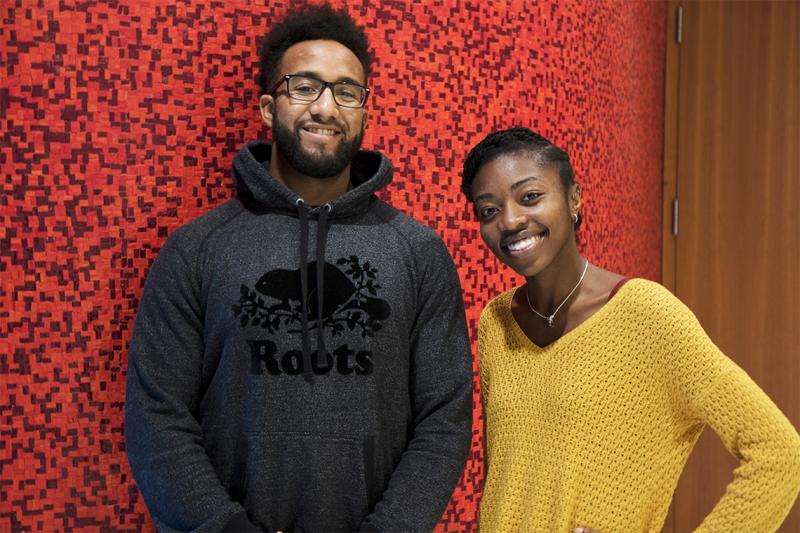November 3, 2017 | Alumni
Building a social network for Black graduate and professional students
By Hannah James

When Josh Lokko and Chika Oriuwa met last fall at a Black Students' Association event at University of Toronto, they realized they were the only students there who weren't undergraduates.
Oriuwa, a second-year medical student in U of T's Faculty of Medicine, and Lokko, in his second year of U of T's joint law-MBA program, decided to create a new group that would cater to the needs of professional and graduate students like them.
The Black Interprofessional Students Association, or “BIPSA” – fills a niche at U of T, they say, by bringing together Black graduate students across faculties and programs to socialize, build professional networks and meet mentors. The group's fall social will be held today at 6 p.m.
Oriuwa says BIPSA was inspired by her own struggle with fitting in, adding her first year in medical school – the only Black student in her cohort of 259 – was particularly difficult.
“I tried to find other networks on campus or go to the Black Students' Association, but there was nothing at the graduate and professional levels," she says. "There was a feeling of isolation, feeling like there was no place to go where I would be 100 per cent comfortable in my own skin and be able to have that shared culture and narrative.”
Read more about Chika Oriuwa and how U of T aims to attract more Black medical students in the Toronto Star
Lokko says his goal with BIPSA is to "bridge gaps" between students and working professionals.
Until recently, he says he could not name a single Black corporate lawyer. Then he saw a story about U of T alumnus Cornell Wright, a partner at Torys law firm in Toronto. “They had a little profile of him in our booklet, and I was like, ‘Wow, I didn’t know that was a thing.' I didn’t know any Black people in corporate law.”
He says he's hoping BIPSA will build relationships with professional associations such as the Canadian Association of Black Lawyers, the Black Physicians' Association of Ontario and other groups to build a mentorship relationship.
Ultimately, says Lokko, he's hoping that BIPSA will help encourage more Black students to pursue careers in law and other professional fields.
“Law influences everything in society,” says Lokko. “And lawyers can become partners in corporate law firms, they become law professors, they become leaders and they shape policies.” This, he says, is why it’s important to have greater Black representation in law and other professional fields.
Oriuwa agrees. “If there’s any legacy I’m going to leave, it’s that I’m going to make it a better experience for the next person behind me that’s in similar shoes,” she says.
Visit BIPSA on Facebook for more information about the group.

